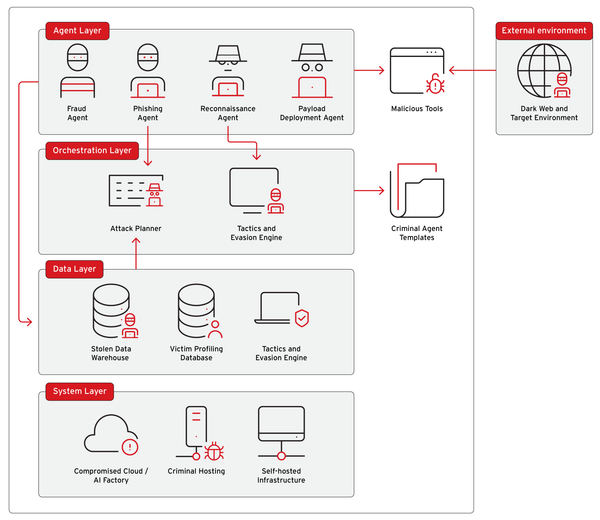Spain Scams 2025: When Sunshine Meets Shadows – €240M in Banking Fraud, Tourism Exploitation, and Spain's Role as Europe's Crime Gateway

Executive Summary
Spain stands at a dangerous crossroads in 2025: while 85 million annual tourists flock to Barcelona's beaches and Madrid's museums, they walk into one of Europe's most sophisticated fraud ecosystems. With €240 million lost to banking fraud in 2023 alone (a 117% increase), 310,289 theft cases in the first half of 2025, and over 298,000 cybercrime victims annually, Spain has become both a prime target for scammers and, more ominously, Europe's primary gateway for Latin American organized crime networks.
The country's unique vulnerability stems from a perfect storm: tourism-dependent economies in Barcelona and Ibiza attracting pickpockets and fraudsters; an aging population (28.6% over 65) targeted by sophisticated phone scams; 43% of Andalusians lacking basic digital skills; and historical ties to Latin America that have transformed Spain into the European operations base for Colombian cocaine cartels and transnational crime syndicates. As Spanish banks reported fraud attacks surging 117% in 2023, and Europol identified Spain as a critical node in Italian 'Ndrangheta, Serbian drug trafficking, and Nigerian fraud networks, the line between street scams and organized cybercrime has blurred into a single, interconnected threat landscape.
The Numbers Behind Spain's Fraud Crisis
Banking and Financial Fraud Explosion
Spanish banks experienced a dramatic 117% increase in fraud attacks during 2023, with recorded losses exceeding €240 million. The trend accelerated further, with the first quarter of 2024 witnessing a 14.3% increase in online fraud compared to the same period in 2023.
In Q3 of 2022, 3.9 million Spanish internet users had their accounts breached, placing Spain among the top five countries globally for account breaches—behind only Russia, France, Indonesia, and the United States.
Cybercrime Scale and Growth
Cybercrime increased by 25.5% in 2023, now accounting for approximately one-fifth of all registered crimes in Spain. The most common form by far remains online fraud schemes at 90% of all cybercrimes, marking a 27% increase compared to 2022.
Over 60 percent of Spanish internet users reported cybersecurity incidents, with projections indicating over 7.8 million Spanish accounts suffered some kind of data breach in 2023. For Spanish companies, the situation is even more dire: half of national corporations suffered a cyberattack in 2023, while three out of four firms faced ransomware attacks.
Tourism-Related Crime Hotspots
The Balearic Islands, including Ibiza and Mallorca, top Spain's overall crime charts with an overall crime rate of 5,073 per 100,000 residents, ranking as the riskiest region. Barcelona, despite its cultural attractions, records 4,238 crimes per 100,000 residents, with theft high at 1,243 per 100,000, alongside cybercrime cases nearing 800.
Theft totaled 310,289 cases in the first half of 2025, consolidating its position as the most common crime, with Madrid and Barcelona accounting for a significant portion due to their population density and tourist influx.
Vulnerable Populations Under Siege
Scammers particularly target the vulnerable, with the latest data from the Mossos d'Esquadra indicating a 78% increase in scams among people over 65 in 2022, compared to 2019. Andalusia emerges as a particularly vulnerable region, with attacks in the region soaring by 43% in 2023, accounting for 17% of Spain's 426,784 online frauds. The reason is stark: 43% of Andalusia's population lacks basic digital skills, and 8% have never used the Internet.
Spain has one of the highest spam rates in Europe, with nearly half (46%) of unidentified calls being spam, and 8% of those unwanted calls being fraudulent.
Spain's Tourism Scam Landscape: The Street-Level Threat
Barcelona: Europe's Pickpocket Capital
Spain's biggest tourist cities saw a surge of pickpocketing in 2025, with Barcelona standing out as particularly notorious. Pickpocketing is one of the most common scams in Barcelona, especially in crowded areas like La Rambla, the metro, and tourist attractions, with thieves often working in groups using distraction techniques.
Common Barcelona Scams:
1. Distraction Theft Teams
Distraction scams involve diverting your attention so an accomplice can steal your belongings, with common distractions including someone spilling something on you, offering help, or asking for directions.
2. Fake Police Officers
Some scammers pose as police officers to trick tourists, approaching them with a fake badge and asking to see ID or search belongings under the guise of checking for counterfeit money, during which they steal valuables.
3. ATM and Card Scams
ATM and card scams are prevalent in Barcelona, with thieves using skimming devices on ATMs that capture card information, or fake helpers who offer assistance only to steal the card or PIN.
4. Overpriced Taxis
Overpriced taxis are common, where drivers overcharge unsuspecting tourists by taking unnecessarily long routes or charging excessive flat rates instead of using the meter, with some claiming the meter is broken.
5. Rental Scams
Rental scams often involve fraudulent listings for apartments that either don't exist or are already occupied, with scammers luring victims with attractive photos and low prices, then requesting an advance deposit before disappearing.
Madrid and Nationwide Patterns
Some taxi drivers, especially at airports or train stations, "forget" to turn on the meter or take the scenic (long) route to tourist destinations. Someone claiming to be a plainclothes police officer may stop tourists, ask for ID, then request to see cash "to check for counterfeits," but once money leaves hands, it's gone.
Some restaurants, especially in tourist-heavy areas, add extra charges, bring unordered dishes, or "accidentally" miscalculate the bill.
The Pea and Cup Street Game
A common tourist scam involves people playing the pea and cup street game, where a person tries to hide a small pea or ball under three cups, with the audience asked to guess which cup has the ball or pea, using distractions to change the cups and cause participants to lose money.
Beach and Photo Scams
At beaches, scammers steal belongings while victims are in the water or napping, with even a couple in Ronda having their camera stolen at a lookout behind the Parador. A kind passer-by offers to take photos with friends, but once handed the camera, they disappear with it.
Spain as Europe's Crime Gateway: The Organized Threat
The Latin American Connection
Spain's transformation into Europe's primary operations base for Latin American organized crime represents one of the most significant shifts in the continent's criminal landscape. Colombia traffickers remain deeply embedded in the Spanish cocaine trade, hiding among a diaspora that has grown from around 10,000 in 1998 to 270,000 today, with 85 percent of Colombians convicted of drug trafficking in Europe incarcerated in Spain.





